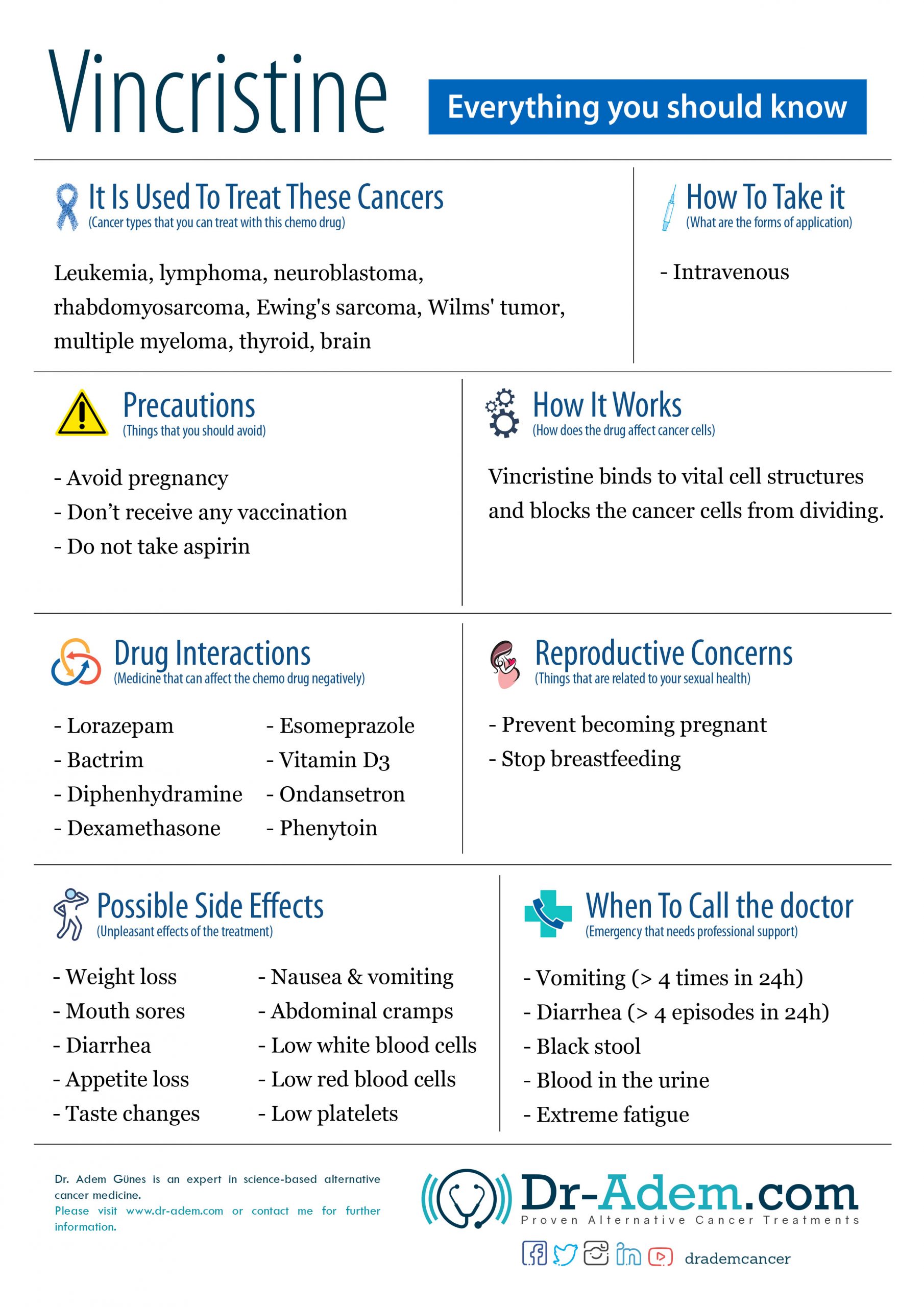Fact Sheet – Everything You Should Know
In this Vincristine fact sheet, you’ll get to know about the precautions, usage, possible side effects, and the types of cancer that you can treat with this chemo drug.

Embed this Infographic on your site:
<a href='https://dr-adem.com/vincristine-fact-sheet/'><img src='https://dr-adem.com/wp-content/uploads/2019/11/Vincristine2-scaled.jpg' alt='Vincristine Fact Sheet'/></a>Here’s the Vincristine fact sheet to get detailed information about Vincristine
It Is Used To Treat These Cancers
(Cancer types that you can treat with this chemo drug)
- Leukemia
- Lymphoma
- Neuroblastoma
- Rhabdomyosarcoma
- Ewing’s sarcoma
- Wilms’ tumor
- Multiple myeloma
- Thyroid
- Brain
How To Take it
(What are the forms of application)
- intravenous
Precautions
(Things that you should avoid)
- Avoid pregnancy because Vincristine may be hazardous to the fetus
- Don’t receive any vaccination
- Do not take aspirin or any product containing aspirin
Mechanism of Action of Vincristine
(How does the drug affect cancer cells)
Vincristine binds to vital cell structures and blocks the cancer cells from dividing.
Drug Interactions
(Medicine that can affect the chemo drug negatively
- Lorazepam (anti-anxiety)
- Bactrim (antibiotic, contains the 2 ingredients sulfamethoxazole and trimethoprim)
- Diphenhydramine (anti-allergic)
- Dexamethasone (steroid)
- Esomeprazole (gastroesophageal reflux)
- Vitamin D3 (Vitamin)
- Ondansetron (anti-nausea)
- Phenytoin (anti-seizure)
Reproductive Concerns
(Things that are related to your sexual health)
- Prevent becoming pregnant because Vincristine can harm your baby
- Stop breastfeeding because there is a risk that Vincristine may appear in high levels in breast milk and could potentially harm your nursing baby
Possible Side Effects
(Unpleasant effects of the treatment)
- Weight loss
- Mouth sores; mouth sores form on the inside lining of your mouth or on your lips. They can be painful, making it difficult to eat, talk, swallow and breathe.
- Diarrhea; can lead to dangerous dehydration
- Appetite loss; can weaken you additionally
- Taste changes; the food can taste metallic, bitter, or even too sweet
- Nausea & vomiting
- Abdominal cramps
- Low white blood cells; risk factor for getting infections
- Low red blood cells; leads to shortness of breath and weakness
- Low platelets; can cause intestinal bleedings
When To Call the doctor
(Emergency that needs professional support)
- Vomiting (> 4 times in 24h)
- Diarrhea (> 4 episodes in 24h)
- Black stool; could be a sign for intestinal bleeding
- Blood in the urine; possibly due to low platelets in the blood
- Extreme fatigue


